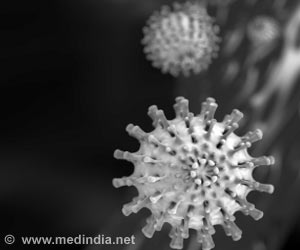Parkinson’s drug linked to harmful gut microbiome changes, potentially caused by iron deficiency, may worsen gut health and impact treatment outcomes.

A new study reveals a surprising side effect of the Parkinson’s drug entacapone. Researchers found that this medication can disrupt the gut microbiome, leading to iron deficiency. This discovery highlights the complex interplay between our bodies and the microbes within us. ()
Neurological Drugs Shape the Gut Microbiome
While it is well established that antibiotics can significantly disrupt the human gut microbiome, emerging research shows that a wide range of human-targeted drugs—particularly those used to treat neurological conditions—can also profoundly affect the microbial communities living in our bodies. Despite their intended therapeutic effects on different organs, these drugs can inadvertently disrupt the balance of gut microbes, leading to potential health consequences. Until now, most studies investigating these interactions relied either on patient cohort analyses affected by many confounding factors or on experiments using isolated gut bacteria, which do not fully capture the complexity of the human microbiome.
Using a novel experimental approach, the international team studied the effects of two drugs—entacapone and loxapine, a medication for schizophrenia—on fecal samples from healthy human donors. They incubated the samples with therapeutic concentrations of these drugs, then analyzed the impact on the microbial communities using advanced molecular and imaging techniques, including heavy water labeling combined with Stimulated Raman Spectroscopy (SRS). The team discovered that loxapine and even more so entacapone severely inhibited many microbiome members, while E. coli dramatically expanded in the presence of entacapone.
“The results were even more striking when we examined microbial activity, rather than just their abundance,” explained Fatima Pereira, lead author of the study and former Postdoctoral researcher at the University of Vienna. “The heavy water-SRS method allowed us to observe the subtle yet significant changes in the gut microbiome, which are often missed in traditional abundance-based measurements.”
The researchers hypothesized that entacapone might interfere with iron availability in the gut, a crucial resource for many microbes. Their experiments confirmed that adding iron to fecal samples containing entacapone counteracted the drug’s microbiome-altering effects. Further investigation revealed that E. coli, which thrived under these conditions, carried a highly efficient iron-uptake system (enterobactin siderophore). This system allowed the bacteria to overcome iron starvation and proliferate, even in the presence of the drug.
This discovery has broader implications for understanding how other human-targeted drugs might affect the gut microbiome. Several drugs, including entacapone, contain metal-binding catechol groups, suggesting that this mechanism could be a more common pathway for drug-induced microbiome alterations.
The findings also present an opportunity to mitigate the side effects of drugs like entacapone. By ensuring sufficient iron availability to the large intestine, it may be possible to reduce dysbiosis and the gastrointestinal issues that often accompany Parkinson’s disease treatment.
Advertisement
“The next step is to explore how we can modify drug treatments to better support the gut microbiome,” said Wagner. “We are looking at strategies to selectively deliver iron to the large intestine, where it can benefit the microbiome without interfering with drug absorption in the small intestine.”
Reference:
- The Parkinson’s disease drug entacapone disrupts gut microbiome homeostasis via iron sequestration – (https://www.nature.com/articles/s41564-024-01853-0)
Source-Eurekalert



